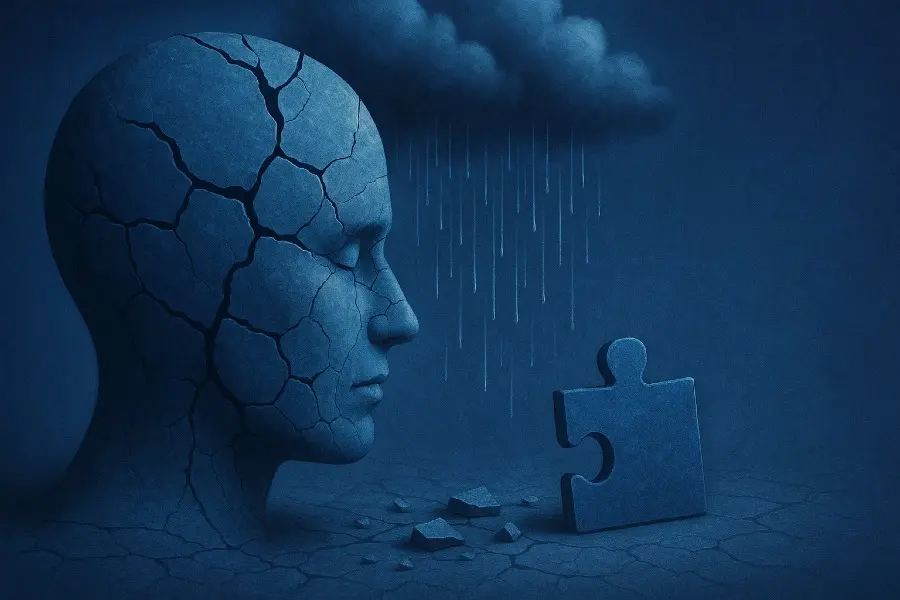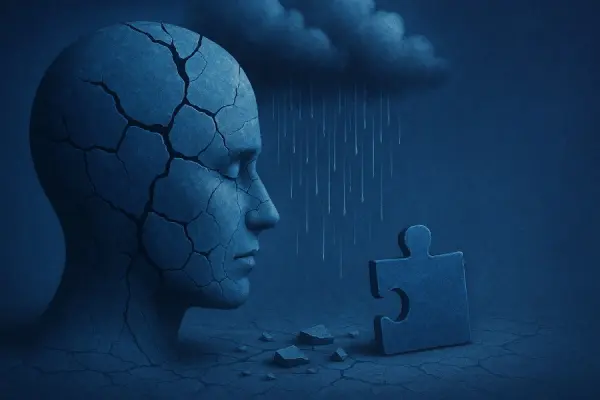Recently, the term mental health has been appearing more frequently across social media timelines, casual conversations, and even self-care product advertisements. It's common to hear phrases like, "I'm depressed," casually thrown around as if it has become everyday vocabulary. This is progress in terms of openness about mental health. But have we ever paused to ask: Do we truly understand what mental health and depression mean? Are we using these terms correctly, or have we narrowed and misused their meanings? Let's take a moment to examine the true essence of mental health—without judgment, with curiosity, and, of course, with empathy.
The Roots of the Term and Lost Nuances
The term mental health comes from two words: health—generally understood as a state of physical and psychological well-being—and mental, which refers to aspects of the mind, feelings, and human behavior. Organizations like the World Health Organization (WHO) define mental health as "a state of well-being in which every individual realizes his or her own potential, can cope with the normal stresses of life, can work productively, and is able to contribute to their community." This definition is profound, complex, and far broader than just not feeling sad or anxious.
However, in reality, the meaning of mental health is often narrowed down to depression or severe mental disorders. This simplification gradually erodes our sensitivity toward normal life experiences—like mood swings, feelings of loneliness, or anxiety before a big exam—often immediately labeled as 'depression.'
Us and the Trend of Calling Ourselves Depressed
Have you ever scrolled through social media and seen friends writing, "Ugh, so much homework, I’m so depressed!" or "Just broke up, I feel like I’m depressed." These statements often appear without awareness that clinical depression is a very serious condition, encompassing periods of profound sadness, loss of interest, feelings of emptiness, sleep disturbances, and even thoughts of self-harm. Frequently, the everyday use of the word 'depression' does not align with its original psychological or medical meaning.
This shift is understandable as language evolves with popular culture. On one hand, increased conversations about mental health help reduce stigma—people feel braver seeking help when vulnerable. On the other hand, if 'depression' is used casually, those genuinely suffering may feel belittled or hesitate to seek help for fear of being labeled 'overreacting.'
Negative Emotions Are Not the Same as Depression
Everyone experiences sadness, anxiety, or feeling down at times. These are natural parts of life. In psychology, these are understood as adaptive responses to stress, loss, or major life changes. Not every negative feeling should be immediately classified as depression. There is a real difference between temporary sadness and clinical depression.
Experiencing negative emotions doesn’t mean our mental state is 'broken.' In fact, understanding and accepting these feelings is an important part of personal growth. As the Japanese proverb goes, "No cherry blossom blooms all year round." Life is a cycle of ups and downs.
The Importance of Accurate Language and Cross-Cultural Empathy
In a diverse society like Indonesia, the narrative around mental health presents its own challenges. Each culture has unique ways of understanding and expressing emotional pain. In some communities, discussing mood or anxiety remains taboo; in others, it is common everyday talk. Korean dramas, Western films, and local soap operas shape our collective perceptions—sometimes misleading, sometimes enlightening.
Hence, it is vital to use mental health terminology thoughtfully and empathetically. When communicating across cultures, we must recognize that the concept of “depression” might be interpreted differently—both linguistically and emotionally. Many Indonesian local languages lack direct equivalents for 'depression,' resulting in terms like "thinking too much," "broken spirit," or "emotional pain." Here, education and open communication play an essential role without dismissing local wisdom.
Reflection: Between Openness and Wisdom
Awareness of mental health's importance is a progressive step worthy of appreciation, but openness must be accompanied by wisdom. Casually claiming to be 'depressed' can blur the line between normal daily emotions and serious psychological issues requiring professional care.
We can start by reflecting each time we hear or want to say 'depression.' Ask yourself, "What am I really feeling?" "Is this sadness fleeting or persistent enough to interfere with daily life?" Avoid rushing to judgment—both toward yourself and others. Listen, understand, then guide or accompany if needed.
Concrete Steps Toward Deep Understanding
Educating ourselves about mental health goes beyond learning psychological terms. It includes recognizing personal needs and boundaries. If you're uncertain about your own feelings or those around you, don’t hesitate to consult professionals like counselors, psychologists, or knowledgeable peers. Everyone's experience is unique, making validation and empathy paramount.
Be open but wise. Use the word 'depression' only when appropriate, without diminishing sensitivity to the realities of your own or others’ feelings. A world increasingly conscious of mental health is one that makes room for all experiences—from tears and laughter to anxiety and inner wounds. All deserve to be heard.
Promoting Healthy Dialogue Across Generations and Cultures
The cornerstone of today’s mental health movement is dialogue. Between generations, cultures, and even languages. Older generations might know the term 'baper' (overly emotional) or 'heartache', while younger people might directly say 'depression.' Bridging this gap requires open communication, avoiding judgment, and fostering curiosity and respect for diverse emotional expressions.
It’s also important to recognize unequal access to mental health services. Many still hesitate to seek help due to limited knowledge, financial barriers, family stigma, or fear of social responses. Here, communities and nonprofits like Makna Media can serve as educational bridges, open cross-cultural dialogue spaces, and advocate for more inclusive, compassionate policies.
What Can We Do?
Start with yourself: practice sensitivity and caution in word choice, cultivate the habit of checking in on your feelings, and create space for those who need to share their stories. If feeling overwhelmed, don't hesitate to open up conversations within trusted circles of friends, family, or community.
For those currently feeling at their lowest: know that sadness is not a flaw, and seeking help is an act of courage, not weakness. Just one small step can make the world seem far more welcoming.
Conclusion
Lorem ipsum dolor sit amet, consectetur adipiscing elit, sed do eiusmod tempor incididunt ut labore et dolore magna aliqua. Ut enim ad minim veniam, quis nostrud exercitation ullamco laboris nisi ut aliquip ex ea commodo consequat. Duis aute irure dolor in reprehenderit in voluptate velit esse cillum dolore eu fugiat nulla pariatur. Excepteur sint occaecat cupidatat non proident, sunt in culpa qui officia deserunt mollit anim id est laborum.
Closing
Thank you for reading and reflecting with us. Let’s continue this dialogue—with empathy and wisdom—for a world where mental health is genuinely understood and valued by everyone.








Responses